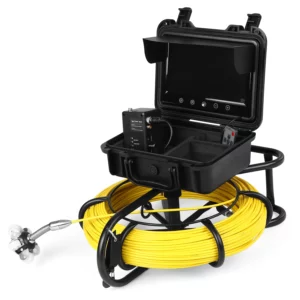Tips for Finding States With Low Property Taxes
Local taxes
All municipalities need to raise taxes to fund the services that they provide. Such services include provision of schools and education, sanitation, hospitals, and infrastructure such as roads etc. Some municipalities will lump all taxes due into a single tax assessment, but others levy each tax separately. The most common taxes are indicated below.
1. Property taxes – An annual tax based on the assessed value of your property estimated not more than six months before the property taxation year. Property tax is intended to pay for services such as schools, roads, hospitals, etc. provided by the municipal government.
The property tax due on residential property is calculated by multiplying the “mill rate” – which is usually set annually -and the assessed value of the property and the building(s) on it. A homeowner’s grant may be deductable from the gross assessed tax in many provinces, but this is applicable to a principal residence only and not to investment property. The amount of grant will depend on the age of the homeowner.
In case you think the amount of property tax is overstated because the assessment of the property value has been set too high, you have the right to appeal. This situation could arise in the case of a downturn in the local property market as the assessments will lag behind market values (having been done several months earlier). Your accountant and real estate professional would be able to advise you in this case.
2. Utility taxes – These taxes are intended to pay for specific services such as water supply, refuse collection, sewerage and so on.
Further information concerning local taxes may be obtained from your lawyer, the local city hall, or the regional assessment authority.
Provincial taxes
The primary provincial tax that impacts real estate investments is the property purchase tax. The assessment is done at the time you purchase a property and it should be paid at the time of purchase. Each province in Canada has its own formula for calculating the amount of tax payable but all methods use the purchase price as the basis.
Information on provincial taxes may be obtained from your lawyer or the branch of the land titles office in your province.
Federal taxes
The two main federal taxes levied in Canada are the Goods and Services Tax and Income Tax.
Goods and Services Tax (GST)
The GST is levied on all transactions that “supply” residential or commercial property, although certain supply transactions may be exempt according to specifications defined in the legislation.
“Supply” in this case broadly covers the sale, lease, transfer, exchange, barter and gift of real property. The GST is also applicable to many services related to real estate transactions.
The GST system
GST is initially paid by the purchaser of goods (property) or services to the vendor. The vendor, in turn, remits the tax to Revenue Canada, Customs and Excise Division. GST may be included in the asking price or added to it as a separate component. The current GST tax rate is 5%; this rate is not fixed by law and may be changed any time. Your accountant should be able to inform you of any changes and the impact on your investment.
A purchaser needs to pay GST, but you may be entitled to a partial rebate of the tax, or offset any paid amounts against received amounts of GST tax. This entitlement would depend on whether the property purchased is intended for use as a principal residence, for investment, or for inventory in a business that buys and sells properties





